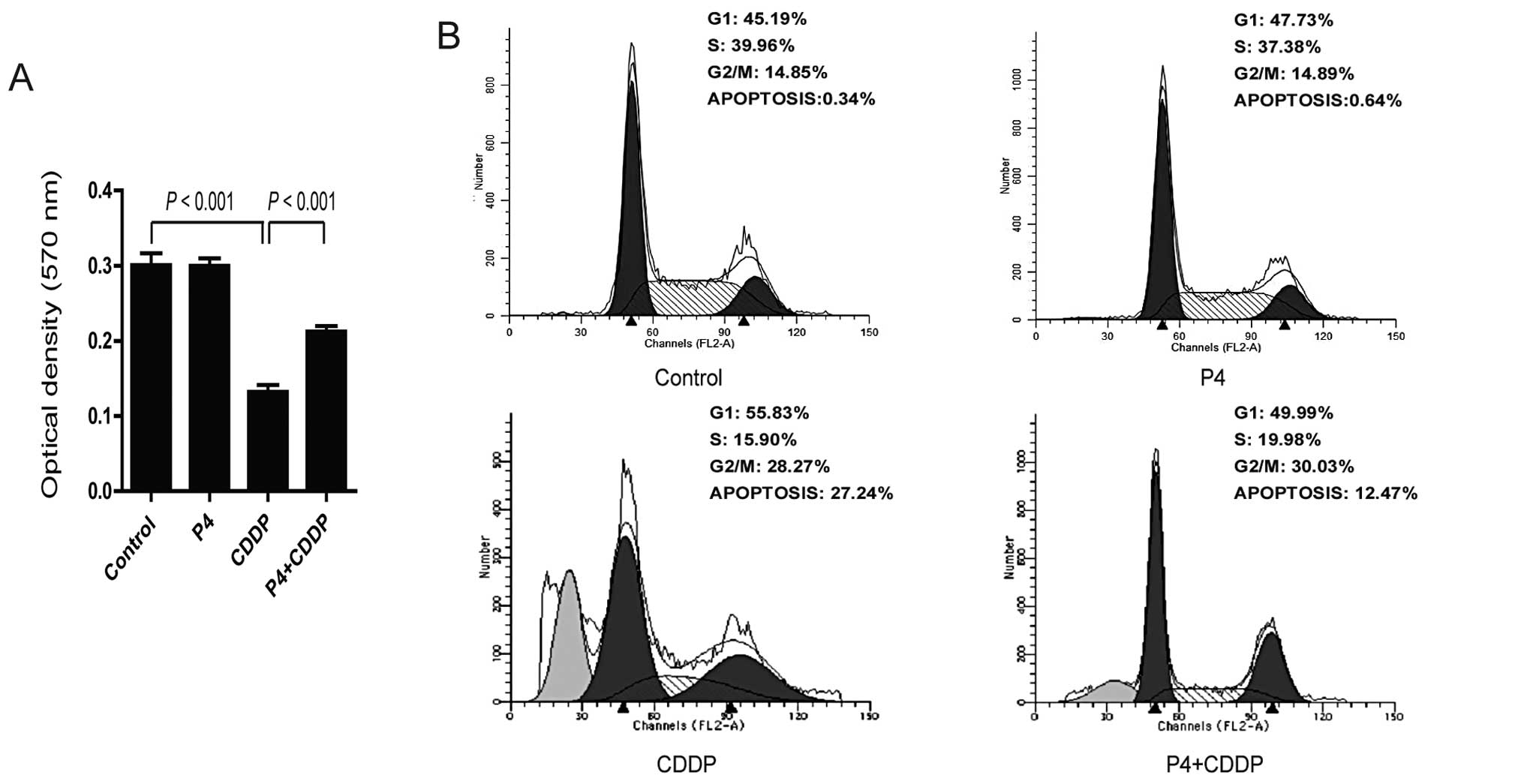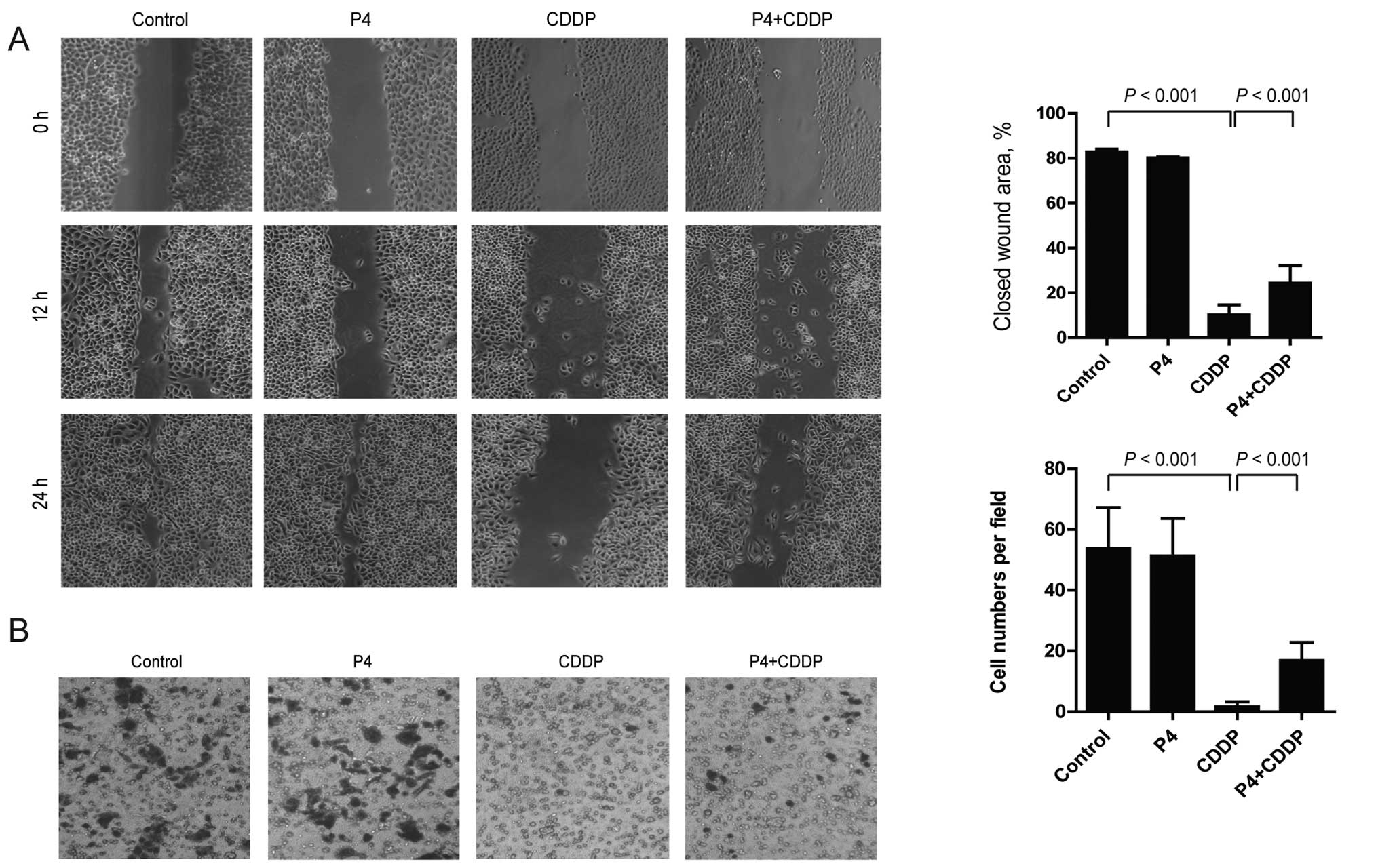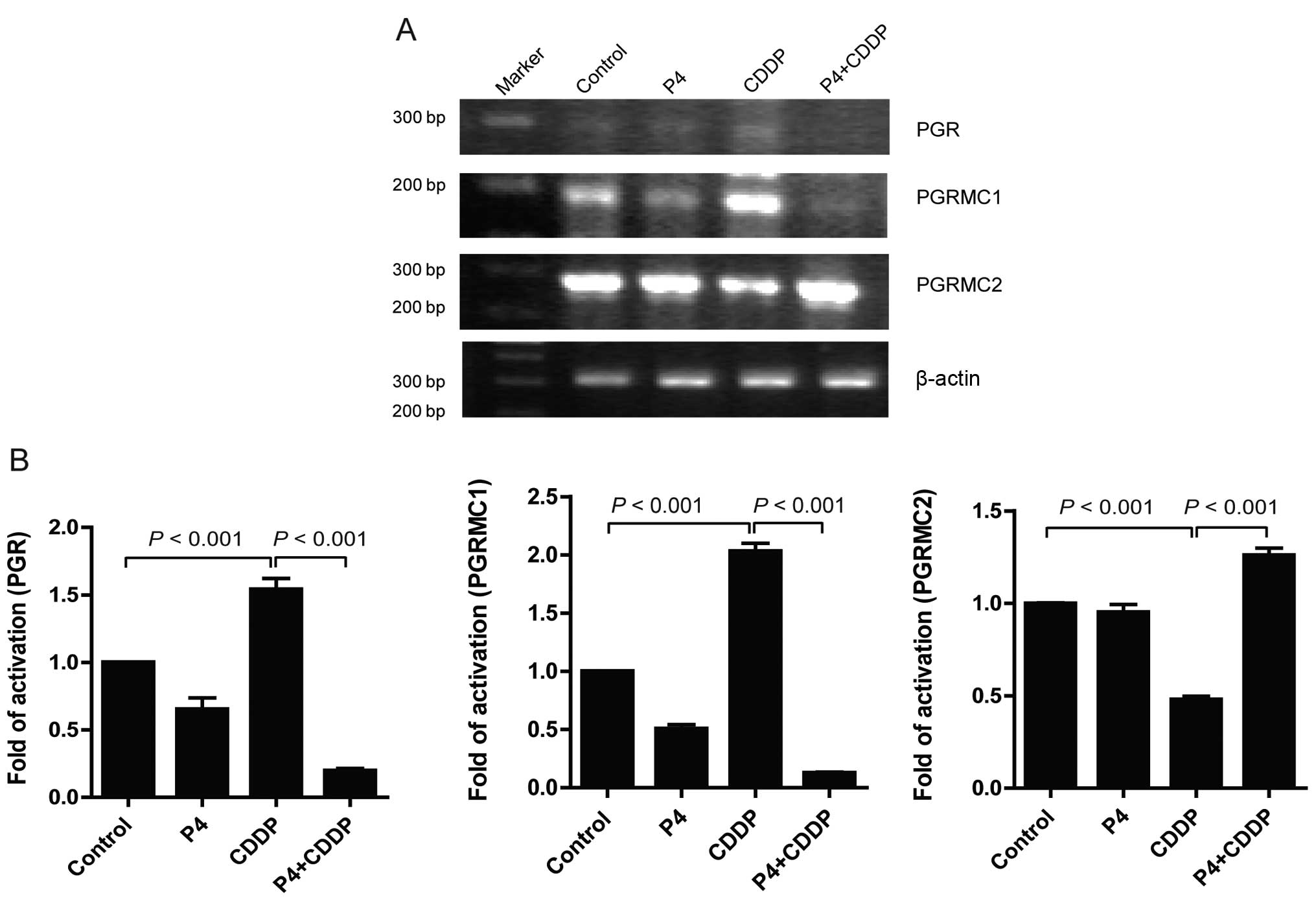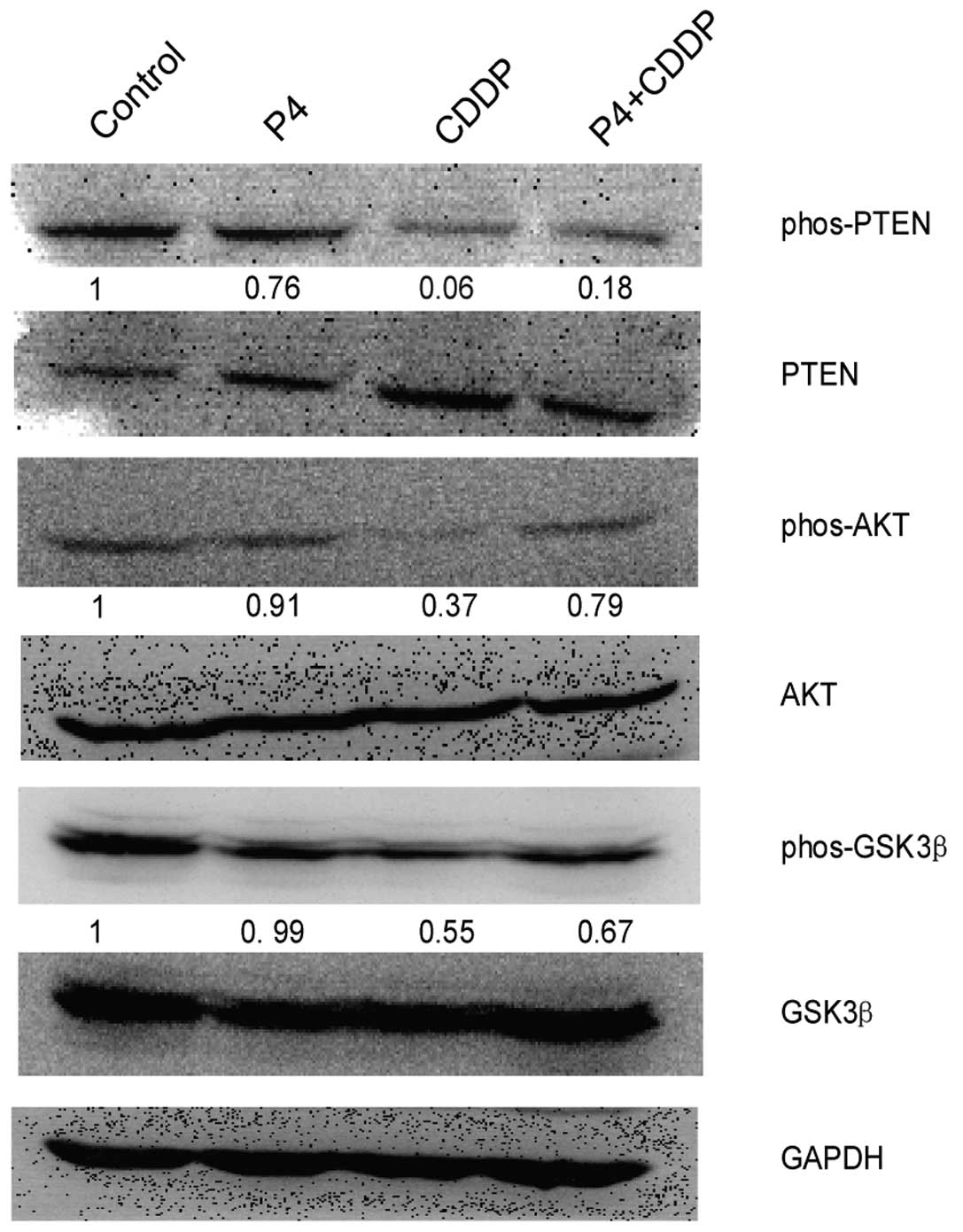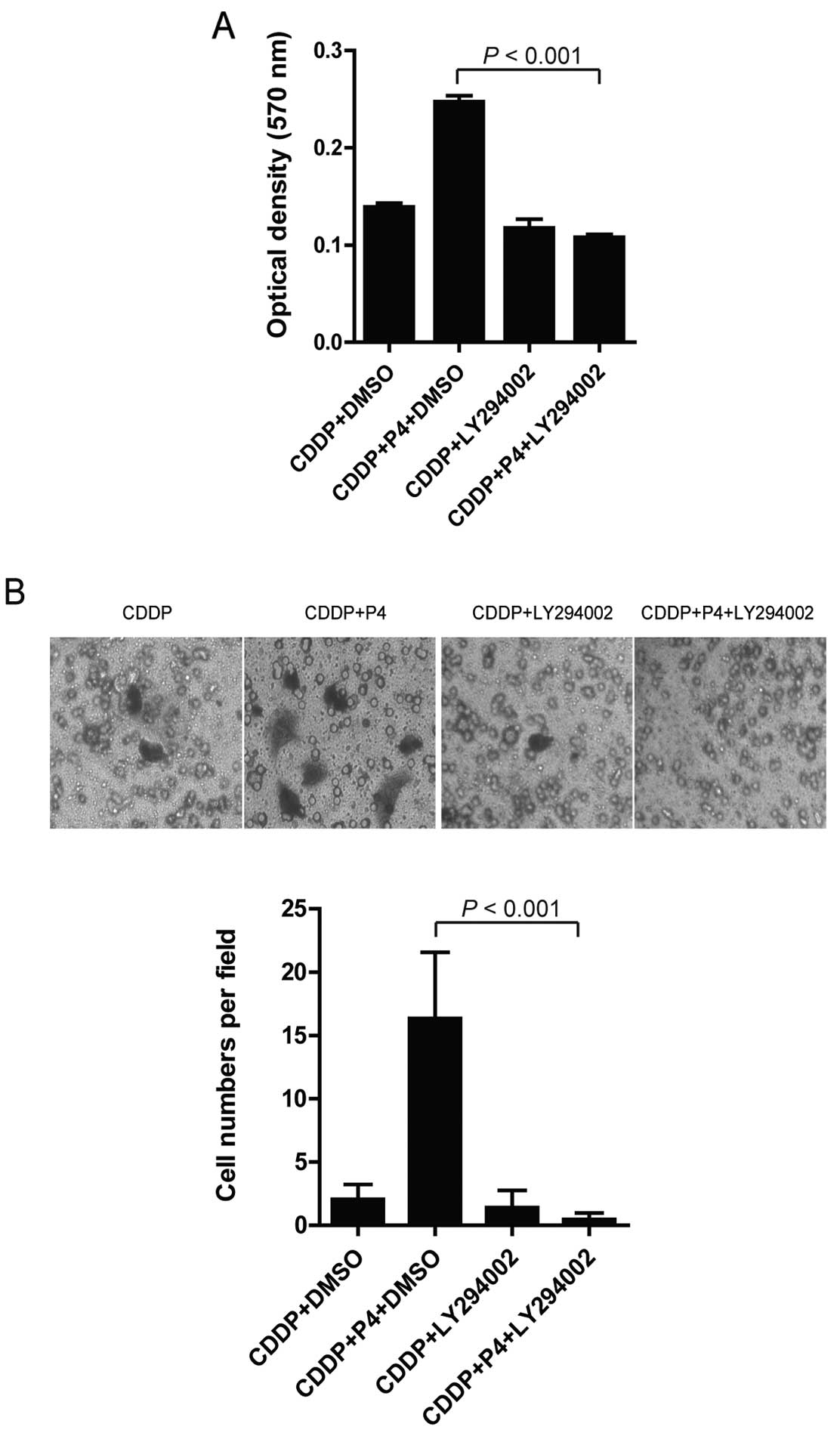|
1
|
Salzberg M, Thurlimann B, Bonnefois H, et
al: Current concepts of treatment strategies in advanced or
recurrent ovarian cancer. Oncology. 68:293–298. 2005. View Article : Google Scholar : PubMed/NCBI
|
|
2
|
O’Brien ME, Dowsett M, Fryatt I and
Wiltshaw E: Steroid hormone profile in postmenopausal women with
ovarian cancer. Eur J Cancer. 30A:442–445. 1994.PubMed/NCBI
|
|
3
|
Halperin R, Hadas E, Langer R, Bukovsky I
and Schneider D: Peritoneal fluid gonadotropins and ovarian
hormones in patients with ovarian cancer. Int J Gynecol Cancer.
9:502–507. 1999. View Article : Google Scholar : PubMed/NCBI
|
|
4
|
Modugno F, Ness RB and Cottreau CM:
Cigarette smoking and the risk of mucinous and nonmucinous
epithelial ovarian cancer. Epidemiology. 13:467–471. 2002.
View Article : Google Scholar : PubMed/NCBI
|
|
5
|
Franks AL, Lee NC, Kendrick JS, Rubin GL
and Layde PM: Cigarette smoking and the risk of epithelial ovarian
cancer. Am J Epidemiol. 126:112–117. 1987.PubMed/NCBI
|
|
6
|
Green A, Purdie D, Bain C, Siskind V and
Webb PM: Cigarette smoking and risk of epithelial ovarian cancer
(Australia). Cancer Causes Control. 12:713–719. 2001. View Article : Google Scholar : PubMed/NCBI
|
|
7
|
Liu L, Wang J, Zhao L, et al: Progesterone
increases rat neural progenitor cell cycle gene expression and
proliferation via extracellularly regulated kinase and progesterone
receptor membrane components 1 and 2. Endocrinology. 150:3186–3196.
2009. View Article : Google Scholar
|
|
8
|
Chen X, Cheng L, Jia X, et al: Human
immunodeficiency virus type 1 Tat accelerates Kaposi
sarcoma-associated herpesvirus Kaposin A-mediated tumorigenesis of
transformed fibroblasts in vitro as well as in nude and
immunocompetent mice. Neoplasia. 11:1272–1284. 2009.
|
|
9
|
Tang Q, Qin D, Lv Z, et al: Herpes simplex
virus type 2 triggers reactivation of Kaposi’s sarcoma-associated
herpesvirus from latency and collaborates with HIV-1 Tat. PLoS One.
7:e316522012.PubMed/NCBI
|
|
10
|
Qin D, Feng N, Fan W, et al: Activation of
PI3K/AKT and ERK MAPK signal pathways is required for the induction
of lytic cycle replication of Kaposi’s sarcoma-associated
herpesvirus by herpes simplex virus type 1. BMC Microbiol.
11:2402011.PubMed/NCBI
|
|
11
|
Albrecht C, Huck V, Wehling M and Wendler
A: In vitro inhibition of SKOV-3 cell migration as a distinctive
feature of progesterone receptor membrane component type 2 versus
type 1. Steroids. 77:1543–1550. 2012. View Article : Google Scholar : PubMed/NCBI
|
|
12
|
Rodon J, Dienstmann R, Serra V and
Tabernero J: Development of PI3K inhibitors: lessons learned from
early clinical trials. Nat Rev Clin Oncol. 10:143–153. 2013.
View Article : Google Scholar : PubMed/NCBI
|
|
13
|
Wu J, Chen C and Zhao KN:
Phosphatidylinositol 3-kinass signalings as a therapeutic target
for cervical cancer. Curr Cancer Drug Targets. 13:143–156. 2013.
View Article : Google Scholar : PubMed/NCBI
|
|
14
|
Polak R and Buitenhuis M: The PI3K/PKB
signaling module as key regulator of hematopoiesis: implications
for therapeutic strategies in leukemia. Blood. 119:911–923. 2012.
View Article : Google Scholar : PubMed/NCBI
|
|
15
|
Sun CC, Ramirez PT and Bodurka DC: Quality
of life for patients with epithelial ovarian cancer. Nat Clin Pract
Oncol. 4:18–29. 2007. View Article : Google Scholar : PubMed/NCBI
|
|
16
|
Tangjitgamol S, Manusirivithaya S,
Khunnarong J, Jesadapatarakul S and Tanwanich S: Expressions of
estrogen and progesterone receptors in epithelial ovarian cancer: a
clinicopathologic study. Int J Gynecol Cancer. 19:620–627. 2009.
View Article : Google Scholar : PubMed/NCBI
|
|
17
|
Shanmughapriya S, Senthilkumar G,
Vinodhini K, Das BC, Vasanthi N and Natarajaseenivasan K: Viral and
bacterial aetiologies of epithelial ovarian cancer. Eur J Clin
Microbiol Infect Dis. 31:2311–2317. 2012. View Article : Google Scholar : PubMed/NCBI
|
|
18
|
Rosa MI, Silva GD, de Azedo Simoes PW, et
al: The prevalence of human papillomavirus in ovarian cancer: a
systematic review. Int J Gynecol Cancer. 23:437–441. 2013.
View Article : Google Scholar : PubMed/NCBI
|
|
19
|
Gonzalez ER: Estrogen, progesterone
receptors in ovarian cancer. JAMA. 245:16261981. View Article : Google Scholar : PubMed/NCBI
|
|
20
|
Yin G, Chen R, Alvero AB, et al: TWISTing
stemness, inflammation and proliferation of epithelial ovarian
cancer cells through MIR199A2/214. Oncogene. 29:3545–3553. 2010.
View Article : Google Scholar : PubMed/NCBI
|
|
21
|
Maccio A, Madeddu C, Massa D, et al:
Hemoglobin levels correlate with interleukin-6 levels in patients
with advanced untreated epithelial ovarian cancer: role of
inflammation in cancer-related anemia. Blood. 106:362–367. 2005.
View Article : Google Scholar : PubMed/NCBI
|
|
22
|
Lee KB, Byun HJ, Park SH, Park CY, Lee SH
and Rho SB: CYR61 controls p53 and NF-κB expression through
PI3K/Akt/mTOR pathways in carboplatin-induced ovarian cancer cells.
Cancer Lett. 315:86–95. 2012.PubMed/NCBI
|
|
23
|
Murdoch WJ, Van Kirk EA, Isaak DD and Shen
Y: Progesterone facilitates cisplatin toxicity in epithelial
ovarian cancer cells and xenografts. Gynecol Oncol. 110:251–255.
2008. View Article : Google Scholar : PubMed/NCBI
|
|
24
|
Seeger H, Wallwiener D and Mueck AO: Is
there a protective role of progestogens on the proliferation of
human ovarian cancer cells in the presence of growth factors? Eur J
Gynaecol Oncol. 27:139–141. 2006.PubMed/NCBI
|
|
25
|
Ho SM: Estrogen, progesterone and
epithelial ovarian cancer. Reprod Biol Endocrinol. 1:732003.
View Article : Google Scholar : PubMed/NCBI
|
|
26
|
Fauvet R, Dufournet Etienne C, Poncelet C,
Bringuier AF, Feldmann G and Darai E: Effects of progesterone and
anti-progestin (mifepristone) treatment on proliferation and
apoptosis of the human ovarian cancer cell line, OVCAR-3. Oncol
Rep. 15:743–748. 2006.PubMed/NCBI
|
|
27
|
Syed V, Ulinski G, Mok SC, Yiu GK and Ho
SM: Expression of gonadotropin receptor and growth responses to key
reproductive hormones in normal and malignant human ovarian surface
epithelial cells. Cancer Res. 61:6768–6776. 2001.PubMed/NCBI
|
|
28
|
Peluso JJ, Gawkowska A, Liu X, Shioda T
and Pru JK: Progesterone receptor membrane component-1 regulates
the development and cisplatin sensitivity of human ovarian tumors
in athymic nude mice. Endocrinology. 150:4846–4854. 2009.
View Article : Google Scholar : PubMed/NCBI
|
|
29
|
Peluso JJ: Progesterone signaling mediated
through progesterone receptor membrane component-1 in ovarian cells
with special emphasis on ovarian cancer. Steroids. 76:903–909.
2011.
|
|
30
|
Lenhard M, Tereza L, Heublein S, et al:
Steroid hormone receptor expression in ovarian cancer: progesterone
receptor B as prognostic marker for patient survival. BMC Cancer.
12:5532012. View Article : Google Scholar : PubMed/NCBI
|
|
31
|
Leite DB, Junqueira MG, de Carvalho CV, et
al: Progesterone receptor (PROGINS) polymorphism and the risk of
ovarian cancer. Steroids. 73:676–680. 2008. View Article : Google Scholar : PubMed/NCBI
|
|
32
|
Gabra H, Watson JE, Taylor KJ, et al:
Definition and refinement of a region of loss of heterozygosity at
11q23.3–q24.3 in epithelial ovarian cancer associated with poor
prognosis. Cancer Res. 56:950–954. 1996.
|
|
33
|
Petz LN, Nardulli AM, Kim J, Horwitz KB,
Freedman LP and Shapiro DJ: DNA bending is induced by binding of
the glucocorticoid receptor DNA binding domain and progesterone
receptors to their response element. J Steroid Biochem Mol Biol.
60:31–41. 1997. View Article : Google Scholar : PubMed/NCBI
|
|
34
|
Noguchi T, Kitawaki J, Tamura T, et al:
Relationship between aromatase activity and steroid receptor levels
in ovarian tumors from postmenopausal women. J Steroid Biochem Mol
Biol. 44:657–660. 1993. View Article : Google Scholar : PubMed/NCBI
|
|
35
|
Mifsud W and Bateman A: Membrane-bound
progesterone receptors contain a cytochrome b5-like ligand-binding
domain. Genome Biol. 3:Research00682002. View Article : Google Scholar : PubMed/NCBI
|
|
36
|
Szczesna-Skorupa E and Kemper B:
Progesterone receptor membrane component 1 inhibits the activity of
drug-metabolizing cytochromes P450 and binds to cytochrome P450
reductase. Mol Pharmacol. 79:340–350. 2011. View Article : Google Scholar : PubMed/NCBI
|
|
37
|
Oda S, Nakajima M, Toyoda Y, Fukami T and
Yokoi T: Progesterone receptor membrane component 1 modulates human
cytochrome p450 activities in an isoform-dependent manner. Drug
Metab Dispos. 39:2057–2065. 2011. View Article : Google Scholar : PubMed/NCBI
|
|
38
|
Leake K, Singhal J, Nagaprashantha LD,
Awasthi S and Singhal SS: RLIP76 regulates PI3K/Akt signaling and
chemo-radiotherapy resistance in pancreatic cancer. PLoS One.
7:e345822012. View Article : Google Scholar : PubMed/NCBI
|
|
39
|
Kim TR, Cho EW, Paik SG and Kim IG:
Hypoxia-induced SM22α in A549 cells activates the IGF1R/PI3K/Akt
pathway, conferring cellular resistance against chemo- and
radiation therapy. FEBS Lett. 586:303–309. 2012.
|















